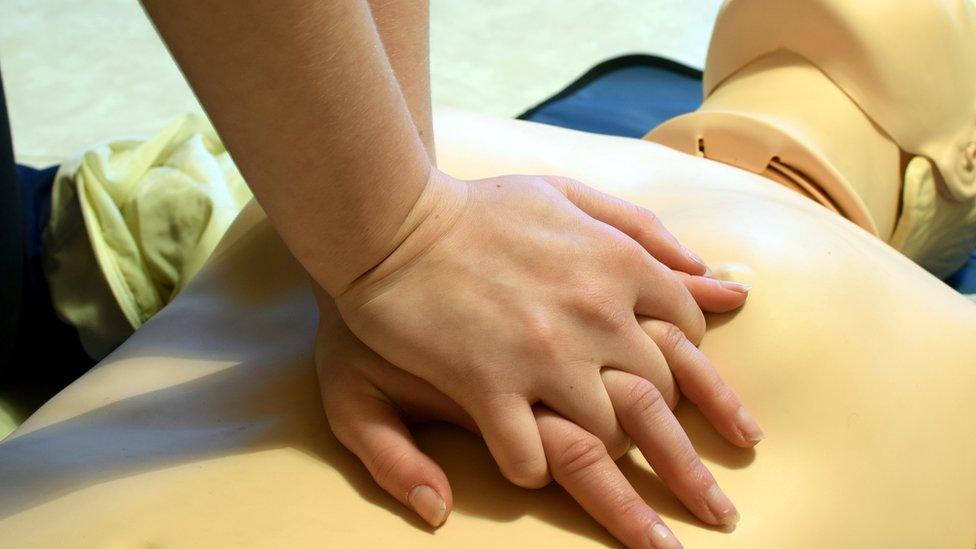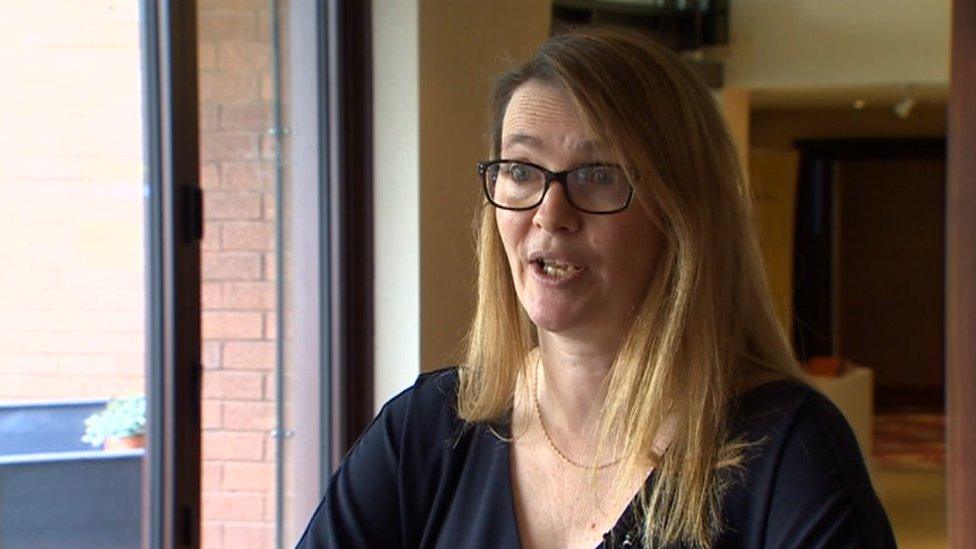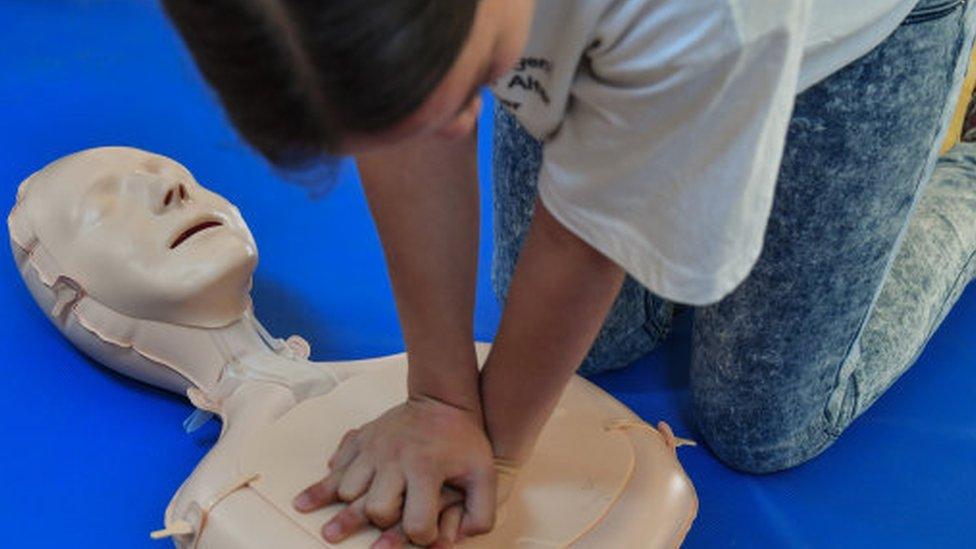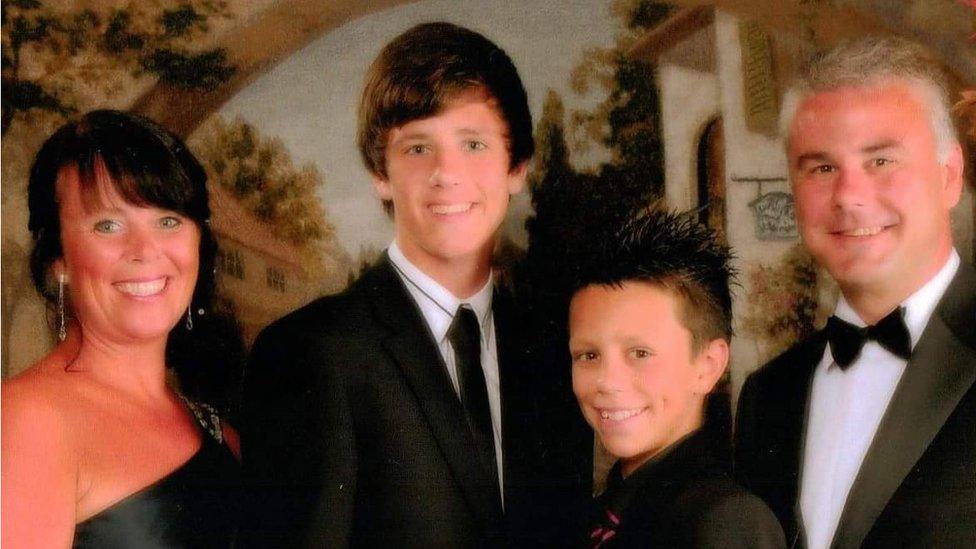Compulsory CPR lessons rejected for schools in Wales
- Published

Teaching CPR in schools may boost the odds of survival for people suffering cardiac arrests outside of hospitals, a charity said
Calls for emergency resuscitation skills to be made compulsory in the new Welsh curriculum have been rejected by the education minister.
The British Heart Foundation (BHF) wants CPR to be taught in all schools.
The charity hopes it would improve the odds of survival for people who have cardiac arrests outside hospitals.
But Kirsty Williams said the curriculum is moving away from prescribed lists of subjects - but there would be nothing to stop CPR being taught.
Plans for a major shake-up of the school curriculum will be announced on Tuesday.
CPR, which stands for cardiopulmonary resuscitation, is a life saving medical procedure that is given to someone who is in cardiac arrest.
It helps to pump blood around a person's body when their heart cannot.
From September 2020, CPR will be added to the English secondary school curriculum, and in Scotland every local authority has committed to teaching lifesaving skills in secondary schools there.

Kirsty Williams said there'll be nothing to stop schools teaching CPR
In Wales there are around 2,800 cardiac arrests which happen outside hospitals each year.
Fewer than one in ten people survive across the UK - a rate BHF Cymru said was lower than rates reported in other countries.
Where CPR is taught universally, such as Denmark and Norway, cardiac arrest survival rates are often much higher than in the UK, BHF Cymru's Emma Henwood said.
She argued that more CPR by bystanders takes place there and survival rates as high as 25% have been reported - around three times higher than in the UK.
The charity estimated that more than 5,000 additional lives could be saved in the UK each year if survival rates as high as that were achieved.
"CPR needs to be learnt universally to significantly improve survival rates and to avoid inequalities between communities by ensuring there are lifesavers in every street and every workplace," Ms Henwood added.
'Nothing to stop teaching CPR'
However Ms Williams rejected the call.
"One of the reasons we're changing our national curriculum is that we're moving away from long lists of subjects that teachers are prescribed by government that they have to teach," she said.
"What we're moving to is a system where the professional judgment and the creativity of our teachers will be able to design and develop a curriculum based on the needs of their children."
But although there will be freedom for teachers, the minister was keen to say that there will be structure to the new curriculum: "It will be in a framework, it's not a free for all, so there'll be plenty of opportunity and there'll be nothing to stop schools teaching CPR and lifesaving skills in the new curriculum."
- Published5 April 2019

- Published25 February 2019
